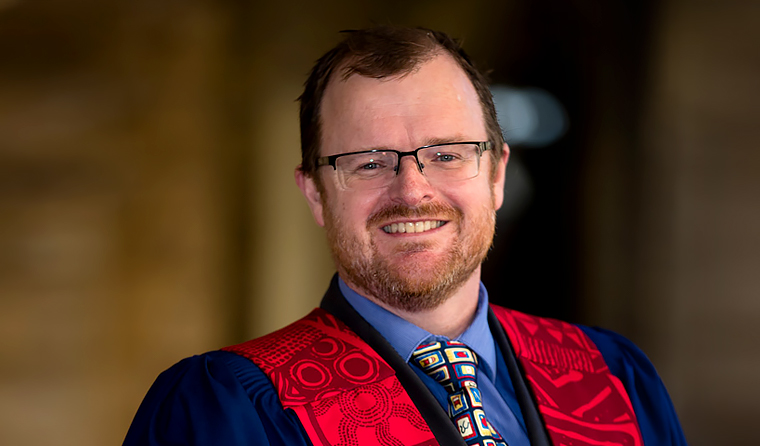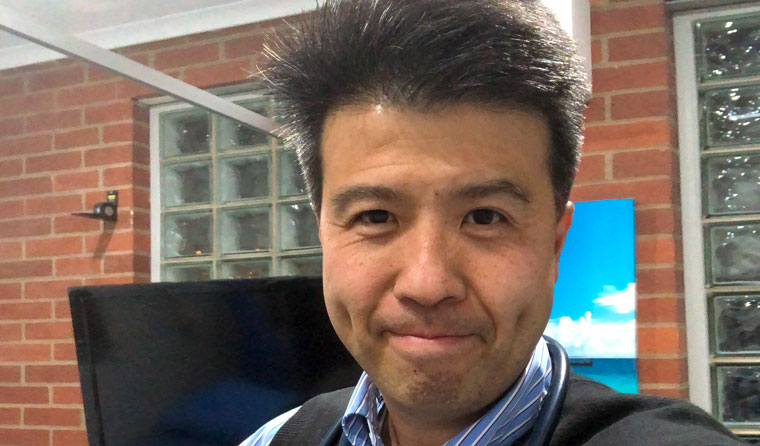News
Go to the market: Government-supplied PPE for GPs a ‘fallback’
Frontline GPs should largely rely on commercial supplies for their own essential personal protective equipment, governments have confirmed.
 The issue of PPE supply has once again raised its head.
The issue of PPE supply has once again raised its head.
The Victorian Government’s PPE Taskforce has confirmed state supplies will not be going to GPs, while the Department of Health has advised GPs that supplies available through Primary Health Networks (PHNs) are only meant as a ‘fallback’ option.
Other state governments, such as Western Australia, have also previously stated they will not supply GPs with personal protective equipment (PPE), even though recently released Victorian Government figures show a large majority of healthcare worker infections have been acquired at work.
Sourcing PPE has been an ongoing issue for GPs since the COVID-19 pandemic began, despite advocacy by the RACGP and other organisations that directly contributed to the Federal Government releasing millions of additional surgical masks in March and April, and gowns and goggles in July and August.
As of 31 August, the Federal Government has sent more than 11 million surgical masks, almost a million P2/N95 respirators, almost 400,000 gowns and 260,000 goggles to PHNs.
The majority of these supplies have gone to GPs or respiratory clinics, and a Department of Health (DoH) spokesperson told newsGP an extra half-billion surgical masks have also been sourced.
Despite these additional supplies, questions persist about governments requiring GPs to source their own PPE commercially where possible, given the national medical stockpile (NMS) has been rebuilt after early concerns about supply, and the fact that states have amassed their own stockpiles largely for hospital use.
RACGP Victoria Chair Dr Cameron Loy told newsGP the issue remains a major concern.
‘Healthcare workers are still at significant risk of COVID-19 and we are still having problems accessing PPE,’ he said.
‘Governments consider us a private business that has to source PPE from the private market. I find that unacceptable.
‘We are an essential part of the public health response – including the ongoing bulk billing of vulnerable patients – but for PPE, we have to go to the market. It does not make sense.
‘At the end of the day, I don’t care where PPE comes from. I’m sick of the confected division over who is federal and who is state-funded.’

RACGP Victoria Chair Dr Cameron Loy says GPs should not be forced to supply their own PPE during a pandemic.
Early hopes that Victoria might be able to provide PPE to add to the intermittent flow or protective gear coming from Federal Government stockpiles have been dashed.
Set up during the first COVID-19 wave in April, the Safer Care Victoria PPE Taskforce was intended to tackle concerns over shortages, provide guidance on use, and allocate the vital protective equipment where it needed to go.
GPs were involved from the beginning, with advisor Dr Bernard Shiu hopeful the taskforce could lead to another supply of PPE from Victoria’s separate stockpile.
In April, Dr Shiu told newsGP the taskforce was aimed at ‘solving the problem’ of PPE availability. This week, however, Dr Shiu said it has become clear that the taskforce was intended to ensure there was enough PPE for hospitals.
‘It was not for anyone else – just the state-run public hospitals,’ he said. ‘It was a surprise to find out that GPs would not get any access to the state stockpiles. It’s a bit disappointing.
‘When we asked, we were told PPE would have to come from PHNs. But PHNs are not supplying anywhere near enough PPE – it’s just surgical masks and a very limited supply of N95 respirators. Gowns, not gloves.’
A Victorian Department of Health and Human Services (DHHS) spokesperson told newsGP the taskforce was intended to ‘support the correct use and provision of PPE to hospitals and healthcare settings where it is required’.
‘Victoria has been procuring and distributing PPE to both public and private hospitals. We have more PPE arriving at our warehouse regularly, ready to be distributed to frontline healthcare workers,’ the spokesperson said.
Despite GPs’ frequent calls for help, the Federal Government has generally drip-fed PPE to GPs from the NMS – usually only surgical masks and small numbers of N95 respirators, but recently goggles as well – using PHNs to distribute the supplies.
In July, Dr Lucas De Toca, Acting First Assistant Secretary of the Department of Health’s COVID-19 Primary Care Response, encouraged GPs to turn to the private market as a first option, describing PHN supplies as a ‘fallback’.
‘The national medical stockpile is a precious asset of our response, and so any part of the health system, any practitioner, any worker, [is] encouraged to try to source PPE through commercial supplies, which [have] significantly improved in the last couple of months,’ he said.
However, in a 20 August webinar, Dr De Toca announced that PPE provision to PHNs would be doubled in both Victoria and New South Wales, given continuing concerns around PPE availability even as commercial supplies improved.
‘[W]e understand that even though the commercial supplies did improve … those supply lines are sometimes unreliable and have been tested in recent times with the resurgence in Victoria and the changes of guidance in New South Wales,’ he said.
‘We’ve [also] been providing eye protection in Victoria – reusable goggles – and instructions on how to safely disinfect them and re‑use them, since the recent changes of PPE advice from the Victorian DHHS.’
Dr De Toca said the doubling of stocks meant an additional 500,000 masks and 190,000 goggles as well as more gowns for Victorian GP respiratory clinics.
‘We are seeing a lot of demand for that PPE, particularly in the areas of high community transmission,’ he said.
‘If you are having issues accessing PPE through normal commercial supplies, please contact your PHN because it will provide you with surgical masks and, depending on what your activity is and where you’re based in terms of the community transmission risk, they also have P2/N95 respirators available.’
Dr De Toca’s comments are the clearest yet in outlining the limits of Federal Government PPE provision.
A DoH spokesperson told newsGP the NMS is a ‘highly strategic reserve of PPE and medical products, and not a general supply line’, with allocation of supplies from PHNs to GPs ‘based on need’.
‘In areas with higher risk, including Victoria, NSW and QLD, 160,000 N95/P2 respirators, three million surgical masks, 265,000 goggles and 265,000 gowns have been provided to PHNs during July and August,’ the spokesperson said.
‘The Government’s position of appropriately ensuring that organisations continue to seek their own source of PPE initially, whilst enabling rapid access to the NMS for a supply shortage, in no way compromises the ability of aged care facilities or healthcare providers to access PPE through the NMS when required and eligible.’
 Victorian GP Dr Bernard Shiu said he was surprised and disappointed to discover that GPs would not have any access to state PPE stockpiles.
Victorian GP Dr Bernard Shiu said he was surprised and disappointed to discover that GPs would not have any access to state PPE stockpiles.
Despite the assurances from Government, MDA National has also questioned the status quo. In an open letter to state and federal authorities, the medical defence organisation’s board said it is ‘alarmed’ at the high number of healthcare worker COVID-19 cases and called for universal access to PPE.
‘GPs and private practice must not be forgotten,’ the letter states. ‘The Federal Government has advised that they should source their own PPE. During a pandemic, this is simply not appropriate.’
For their part, frontline GPs like Dr Shiu have found it frustrating to deal with the limited PHN supplies.
‘We have contacted PHNs asking the rationale [for] who gets what and how many,’ he said.
‘Sometimes we get 50 masks, sometimes 100. Some clinics get more, others get less. They never actually tell us the reason.’
Dr Loy believes neither government has ever planned to give GPs necessary access.
‘I don’t think either state or federal governments had any intention to release their PPE stockpiles to general practice in any significant quantity,’ he said.
As a result, frustrated GPs have been forced to turn to the private market, with some practices forming informal buying groups sourcing large orders from overseas – just as government procurers have been doing.
Earlier in the year, Adelaide GP Dr Alvin Chua found PPE manufacturers in China and began placing large orders for dozens of practices, driven by the high local prices and lack of availability.
Dr Shiu said he now sources much of his PPE from Dr Chua’s operation, which provides PPE to general practice at cost price.
‘To buy 50 surgical masks before COVID cost $19.99 a box. Then it went all the way up to $45.99 a box. By May, I was calling my medical supply company every week but they didn’t have enough,’ he said.
‘Dr Chua ships the PPE to us at cost and we distribute it to other practices in Geelong.’
Forcing GPs to provide their own PPE has been a big drain on finances for some practices, according to Dr Sachin Patel.
Dr Patel, a founder of Aged Care GP, told newsGP PPE is a ‘financial burden on practices’, with a large disparity between well-resourced practices and those less so.
He believes contradictory advice on PPE use from federal and state authorities has resulted in a ‘complete lack of standardisation’.
‘Different businesses have taken different approaches to protecting people,’ he said.
‘It has become very much an individual value-based decision, and it shouldn’t be that way. It should be the safety of people first.
‘It is unfortunate that people in the firing line don’t get much of a say in it.’
Log in below to join the conversation.
coronavirus COVID-19 pandemic personal protective equipment PPE
newsGP weekly poll
How often do patients ask you about weight-loss medications such as semaglutide or tirzepatide?